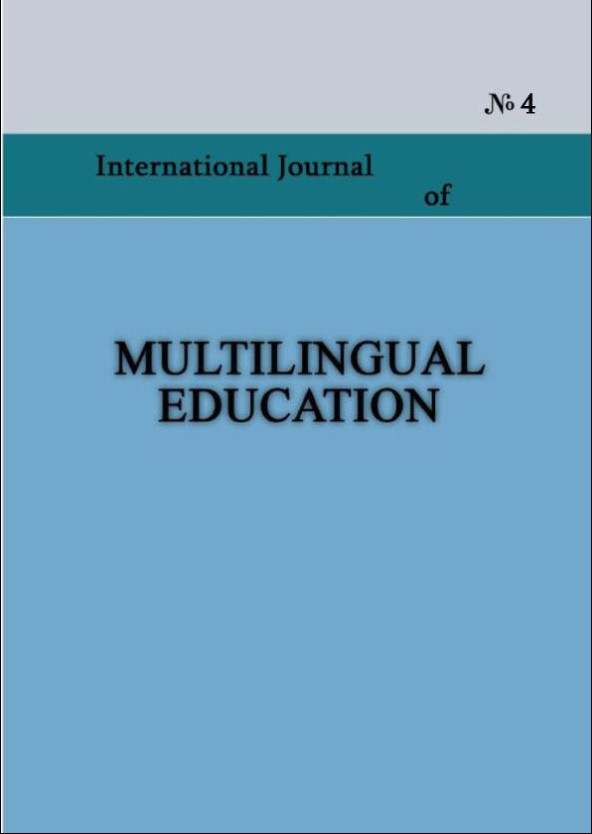MULTILINGUALISM IN CONTEMPORARY BRITISH POETRY
Keywords:
multilingualism, hybridization, code-mixing, embedded language, language and cultural interac- tion.Abstract
Multilingualism is very much in the air now. Poetic language being inherently recep- tive to the minute changes in the society could not but reflect this tendency of modern life in its structure and vocabulary. The phenomenon of multilingualism as one of the aspects of poetic speech is the subject of this article. Various types and functions of multilingualism are considered. Special attention is paid to multilingualism as an ar- tistic strategy in the contemporary British poetry.
References
Burt, Stephen. “Thirteen or Fourteen”: Paul Muldoon's Poetics of Adolescence. In Critical Essay. Ed. By tim Kendall and Peter McDonald. Liverpool University Press 2004, 19-29/
Herbert W.N. Introduction to “Forked Tongue” (Bloodaxe,1994), 5 -12.
Johnston, Maria. CPR – Paul Muldoon Reviewed by Maria Johnston (www.cprw.com/Johnston/ Mul-doon.htm)
Kay, Jackie. (Jackie Kay talks writing and more with Lynn Davidson 19-06- 13) www.bookcouncil.org. nz/Blog/General/Jackie%20Kay%20tall.
McKendrick, Jamie “Interview with Paul Muldoon”. The Independent, Saturday 24, September 1994.
Watson, Roderick. Living with the Double Tongue: Contemporary Poetry in Scots//The Edinburgh History of Scottish Literature, Volume Three: Modern Transformations: New Identities. Edinburgh Uni-versity Press, 2006. 163-175.
“Welsh poet at Stanford: Small languages make a big difference” (Gwyneth Lewis is interviewed by Cyn-thia Haven). Stanford News, January 7, 2010.
Published
How to Cite
Issue
Section
License
Copyright (c) 2014 Liliia Teterina

This work is licensed under a Creative Commons Attribution-NonCommercial 4.0 International License.
Copyright (c) - Authors who publish with this journal agree to the following terms: Authors retain copyright and grant the journal the right of first publication with the work simultaneously licensed under a Creative Commons Attribution-Noncommercial 4.0 International License, which allows others to share the work with an acknowledgement of the work's authorship and initial publication in this journal. Authors are permitted and encouraged to post their work online (e.g., in institutional repositories or on their personal website) prior to and during the submission process, as it can lead to productive exchanges, as well as earlier and greater citation of published work (see The Effect of Open Access). Authors may enter into separate, additional contractual arrangements for the non-exclusive distribution of the journal's published version of the work (e.g., post it to a repository or publish it in a book), with an acknowledgement of its initial publication in this journal.

